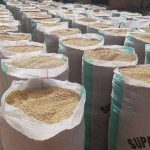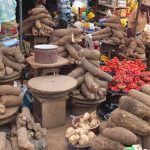Rice mills across northern Nigeria are closing due to a surge in production costs and scarce access to intervention funds, highlighting a deepening crisis in the sector. Key factors, including soaring energy prices, expensive loans, and rice paddy shortages, have driven millers to halt operations.
The shutdowns come in the wake of recent economic reforms like the removal of fuel subsidies and unification of Nigeria’s forex market, pushing costs to unsustainable levels. Rice prices, for instance, have jumped over 140% in the past year, reaching around N100,000 per 50kg bag—a significant burden for consumers.
Mr. Retson Tedheke, a Nasarawa state farmer, shared the challenges explaining, “I spend N1 million on diesel for our operations because electricity is unreliable.” Diesel prices have doubled, and new electricity tariffs have added pressure, with many millers now questioning the sustainability of their ventures.
Other farmers echo similar frustrations. Mr. Sadiq, another mill operator, noted the high costs of imported parts and tripling diesel expenses, factors forcing some to auction or close mills. In response, the government removed the 7.5% VAT on diesel imports, yet diesel costs remain a severe challenge.
The scarcity of rice paddy, worsened by 2022’s devastating floods, compounds the issue. To source rice, Mr. Retson must travel to Cameroon, while Mr. Sadiq highlights that middlemen have inflated paddy prices. Even Lagos State’s large rice processing plant has seen minimal operation due to paddy shortages, despite recent federal approval to import grains like rice and maize.
The absence of affordable financing further hinders rice millers. With inflation at record highs, the cost of borrowing has become prohibitive, limiting production. According to Mr. AY Hassan, who closed his mill over a year ago, “We are planning on reopening when this economic crisis settles a bit,” though a timeline is uncertain.
As closures persist, delays in duty-free importation for rice paddy by the Nigerian Customs Service exacerbate the situation, leaving consumers and producers alike facing escalating prices and limited access to essential goods.










